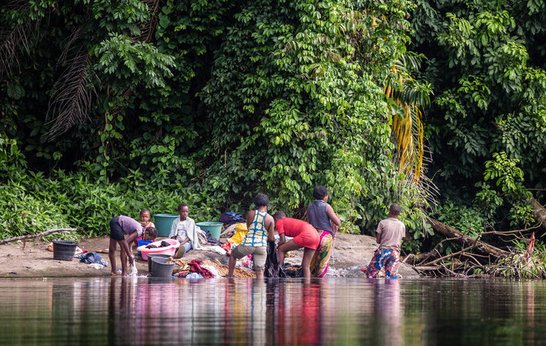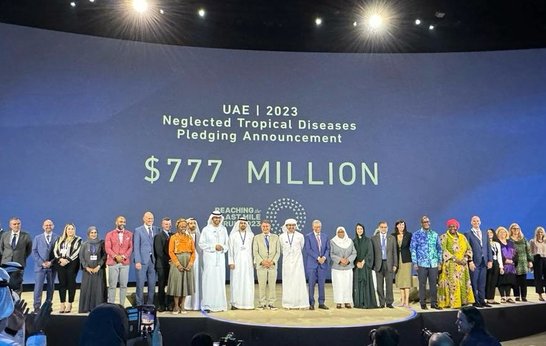The spread of dengue and other mosquito borne diseases to the UK is “one of the most significant risks for public health posed by climate change” according to a new report published by the UK government.
The report, published today (11 December 2023) by the UK Health Security Agency, shows that warming temperatures will lead to the “potential introduction and establishment of invasive mosquito species in the UK, particularly Aedes albopictus, an aggressive daytime biting mosquito species that can transmit several arboviruses of public health concern, including dengue, chikungunya and Zika.” Moreover, this report demonstrates quite clearly the importance of urgently tackling neglected tropical diseases (NTDs), like dengue and chikungunya, at source so as to reduce the risk of these diseases emerging as a public health concern in the UK.
Dengue is the most rapidly spreading mosquito-borne disease globally, and there has been a 30-fold increase over the past 50 years. Transmission of dengue fever is increasing across Europe with local transmission in Spain, France and Italy.
This new report suggests that in the absence of the adoption of climate change mitigation and adaptation measures, most of England will have become suitable for the establishment of the mosquito that carries dengue as early as the 2040s or 2050s and most of Wales, Northern Ireland, and parts of the Scottish Lowlands as early as the 2060s or 2070s.
Dengue and chikungunya are viral infections that cause fever, debilitating joint pain, and can be fatal. They are just two of a group of 20 diseases recognised by the World Health Organization and known as neglected tropical diseases (NTDs). These diseases are preventable and treatable yet affect an estimated 1.65 billion people around the world and cause immeasurable suffering. For many of the diseases in this group, there are tools that are readily available that if deployed could eliminate them as a public health concern. Yet the lack of political will combined with severe cuts to funding for NTD programmes, including by the UK government in recent years, has meant that many NTDs have started to re-emerge.
As this study by the UK Health Security Agency demonstrates, climate change is affecting the geography where vectors – such as mosquitoes – can survive and breed. This means that diseases are moving to new areas that are not used to managing these diseases as a public health concern. It also means that warmer climates will extend the disease transmission season and improve the climatic and environmental conditions for the transmission of many other diseases. This perfect storm of increased disease transmission and geographical spread, combined with political ambivalence and a lack of targeted funding, means that these diseases are more likely to become a public health concern for the UK in the near future.
What is urgently required is to direct resources to endemic areas now, so as to control NTDs, such as dengue and chikungunya. In doing so, this will help to protect hundreds of millions of people currently affected by NTDs and minimise the risk of further spread.
A good example that highlights not only the foresight and political will required, but crucially the funding needed to address NTDs, has just been demonstrated at the first ever Health Day at COP28 during the Reaching the Last Mile Forum (RLMF). During RLMF, numerous donors (including the governments of Tanzania, Sierra Leone, the UAE, USA, Germany and Belgium), philanthropists (such as Bill and Melinda Gates Foundation, CIFF, Delta Philanthropies and others), and NGOs (such as Sightsavers, the Carter Centre, FHI and others) made commitments totalling $777 million to eliminate onchocerciasis and lymphatic filariasis from endemic countries in Africa, along with other NTDs. This is wonderful news and shows what can be done when different stakeholders work together for the common good.

